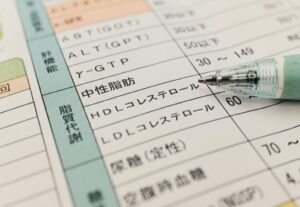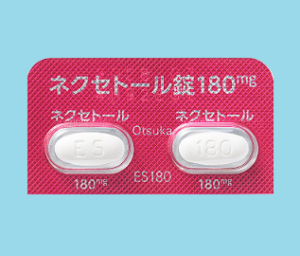睡眠不足の影響とは?健康リスクと改善方法を徹底解説
こんにちは、高血圧といびきの内科 神保町駅前の鎌形です。
当院では千代田区・神保町を中心に、九段下、お茶の水、水道橋エリアの皆様に、
内科診療を提供し、とくに高血圧や睡眠・不眠・いびきの治療に注力しています。
今回は睡眠不足の影響について徹底解説します。
睡眠不足の基本知識|現代社会の深刻な問題
現代社会では、慢性的な睡眠不足が珍しくありません。多くの人が仕事や社会的責任のせいで十分な睡眠を取れていないのです。
睡眠には「時間(量)」と「深さ(質)」という二つの側面があります。どちらかが不足すると、日中の集中力や作業効率に影響が出ます。
実は睡眠時間だけでは、朝スッキリ目覚めて効率よく一日を過ごせるかどうかの指標にはなりません。睡眠の質もまた重要なのです。
この記事では、急性および慢性的な睡眠不足の定義から影響、そして改善方法までを詳しく解説します。
睡眠不足とは?|定義と種類を理解する
睡眠不足とは、睡眠時間の減少や睡眠の質の低下によって、十分な覚醒度や健康をサポートできない状態を指します。
急性睡眠不足は、1〜2日間続く睡眠なしの状態または通常より短い睡眠時間を意味します。一方、慢性的な睡眠不足は、日常的に必要な量より少ない睡眠を取り続けている状態です。
慢性的な睡眠不足は不眠症と混同されがちですが、両者には違いがあります。睡眠不足の人は機会があれば素早く眠りにつけますが、不眠症の人は疲れていても眠れないのです。
国際睡眠障害分類では、最低3か月間ほぼ毎日睡眠が制限され、日中の強い眠気を引き起こす状態を「不十分な睡眠症候群」として認識しています。
人に必要な睡眠時間|個人差を理解しよう
個人にとって最適な睡眠量を決めることは簡単ではありません。自然に目が覚めるまでどれくらい眠るか、また異なる睡眠時間で翌日どれほど集中できるかを観察するのが一つの方法です。
睡眠ニーズは人によって大きく異なります。多くの成人は一晩に6〜8時間睡眠をとりますが、中には6時間未満でも元気に過ごせる「短時間睡眠者」もいます。
逆に10時間以上の睡眠を必要とする人もいるのです。これらの個人差を考慮し、アメリカ睡眠医学会は成人が定期的に一晩7時間以上の睡眠をとることを推奨しています。
年齢によっても必要な睡眠時間は変化するため、自分自身の体調や生活リズムに合わせた睡眠時間を見つけることが大切です。
睡眠不足の実態|その広がりと要因
統計によると、成人の約3分の1が平日に7時間未満の睡眠しかとっていません。特に若年層(65歳未満)での睡眠不足が目立ちます。
また社会経済的地位が低い人々の間でも、睡眠不足はより一般的に見られるようです。職業別では、長時間労働や交代制勤務、仕事のストレスが多い人ほど短い睡眠時間の傾向があります。
さらに懸念すべきことに、短時間睡眠の有病率は年々増加しています。ある研究では、短時間睡眠(一晩6時間未満)の割合が1975年の7.6%から2006年には9.3%に増加したことがわかりました。
このように睡眠不足は現代社会において拡大しつつある問題なのです。
睡眠不足の要因|量と質の両面から考える
睡眠量の不足による影響
睡眠不足は一晩の睡眠を完全に逃した場合(急性)と、複数の夜に部分的に睡眠が制限される場合(慢性)があります。後者の方が気づきにくいものの、蓄積すると急性と同等の影響をもたらします。
通常より少ない睡眠でも、6時間以上あれば一見問題なく機能するように見えることがあります。しかし精密な測定では、反応時間の遅れなどの影響が検出されるのです。
睡眠不足の期間後に通常の睡眠時間に戻ると「リバウンド睡眠」が生じます。これは深い眠りやレム睡眠が通常より多く現れる現象です。
睡眠の質低下による影響
興味深いことに、8時間以上眠っても睡眠不足になる場合があります。これは主に睡眠の質の問題によるものです。
睡眠の質は、夜間の覚醒回数や睡眠段階の割合、持続時間によって決まります。1時間あたりわずか5回の短い覚醒でも、日中の眠気や能力低下をもたらす可能性があるのです。
特に睡眠時無呼吸などの睡眠障害は睡眠を断片化させ、深刻な睡眠不足状態を引き起こします。患者自身は気づかないことが多いため、問題が見過ごされがちです。
急性睡眠不足の影響|短期的な変化と危険性
認知機能への深刻な影響
急性睡眠不足の最も顕著な影響は認知障害です。実験によると、一晩7時間未満の睡眠は集中力と注意力の低下をもたらします。
特に単調な作業では反応時間が長くなり、持続的な注意力を要する作業はわずか数時間の睡眠不足でも困難になります。より高度な思考を必要とする論理的推論や複雑な計算なども大きな影響を受けます。
ある研究では、睡眠を一晩6時間以下に制限すると、2晩の完全な睡眠不足に相当する認知機能の低下が見られました。さらに被験者自身はその低下にほとんど気づいていなかったのです。
この認知機能低下は単なる眠気だけでなく、長時間覚醒していた脳神経細胞の疲労によるものとも考えられています。
気分や判断力への影響
睡眠不足はうつ病や不安障害に似た精神状態を引き起こすことがあります。気分の落ち込み、イライラ、エネルギー低下、判断力の低下などの症状が現れるのです。
幸いなことに、これらの症状は十分な睡眠で回復することが多いです。しかし長期間の睡眠不足が続くと、精神健康に深刻な影響を与える可能性があります。
マイクロスリープの危険性
睡眠不足は強い睡眠衝動をもたらし、日中に数秒間の突然の「マイクロスリープ」を引き起こすことがあります。
これは特に運転中に危険です。時速60マイルで走行する車は3秒間のマイクロスリープの間に約75メートル以上移動します。道路がカーブしたり前方で車が停止したりすると、深刻な事故につながる恐れがあるのです。
このように短時間の意識消失でも重大な結果をもたらす可能性があります。特に眠い運転手は緊急時に全く反応できないことがあります。
呼吸や身体機能への影響
さらに睡眠不足は呼吸機能にも影響します。研究によると、睡眠不足は高炭酸ガスや低酸素に対する換気反応を抑制する可能性があります。
また呼吸筋の持久力も低下し、特に吸気筋の機能が弱まることがわかっています。これらの影響は、呼吸器疾患や神経筋疾患のある患者ではさらに深刻になる恐れがあります。
慢性的な睡眠不足の結果|長期的な健康リスク
事故と職場エラーのリスク増加
慢性的な睡眠不足は事故や仕事のミスを増加させます。過度の眠気は自動車事故の主要原因であり、米国の致命的なトラック事故の半数以上に関連しています。
ある研究では、睡眠障害のある警察官は職場でのミスや運転中の居眠り、怒りのコントロール不足などのリスクが有意に高いことが示されました。
睡眠不足は作業効率だけでなく、判断力や感情制御にも影響するため、様々な職業で安全上の問題となっているのです。
心血管疾患リスクの上昇
短時間睡眠は心臓病や脳卒中などの心血管疾患リスク増加と関連しています。アメリカ心臓協会は睡眠不足を心臓健康の重要なリスク要因として認識しています。
ある大規模研究では、一晩6時間未満の睡眠は心筋梗塞リスクを約20%増加させることがわかりました。また長時間睡眠(9時間以上)もリスク増加と関連していました。
さらに健康な中年成人でも、短時間睡眠は動脈硬化の進行と関連していることが確認されています。これは炎症反応の増加が一因と考えられています。
免疫力低下と感染症リスク
慢性的な睡眠不足は免疫系にも悪影響を与えます。ワクチン接種への免疫反応が減少し、風邪やインフルエンザにかかりやすくなるのです。
研究によると、質の悪い睡眠は一般的な風邪、COVID-19、上気道感染症などへの感受性を高めます。これは深刻な健康リスクとなり得ます。
また免疫系の変化は炎症マーカーの増加とも関連しており、様々な慢性疾患リスク増加の一因となっている可能性があります。
肥満と代謝障害のリスク
睡眠不足は肥満や代謝障害のリスクを高めます。一晩6時間以下の睡眠時間の人は、5年間の追跡調査で代謝症候群発症リスクが3倍高かったという研究結果があります。
短時間睡眠は食欲を調整するホルモンであるレプチンとグレリンのバランスを崩し、食欲増加や高カロリー食品への欲求を高める可能性があります。
また睡眠不足はインスリン感受性を低下させ、血糖値の上昇を引き起こすことで、2型糖尿病リスクも高めるのです。
全死因死亡率の増加
大規模な観察研究によると、短時間と長時間の両方の睡眠時間が全死因死亡率の増加と関連しています。
代表的なメタ分析では、一晩7時間の睡眠を基準として、それより短くても長くても死亡リスクが段階的に増加することが示されました。具体的には7時間未満では1時間減るごとに6%、7時間以上では1時間増えるごとに13%リスクが上昇します。
また睡眠の規則性も重要で、就寝・起床時間が不規則な人は死亡リスクが高まることもわかっています。つまり睡眠時間の長さだけでなく、規則正しさも健康に影響するのです。
睡眠不足を改善する方法|より良い睡眠のために
睡眠習慣の見直し
睡眠不足改善の第一歩は、自分の睡眠パターンを知ることです。睡眠日記をつけて、就寝・起床時間や睡眠の質を記録しましょう。
また規則的な睡眠スケジュールを維持することが重要です。平日も休日も同じ時間に就寝・起床することで、体内時計が調整され質の高い睡眠が得られやすくなります。
さらに日中の短い仮眠(20分程度)も、集中力回復に効果的です。ただし夕方以降の仮眠は夜の睡眠に影響するため避けるべきでしょう。
睡眠環境の最適化
快適な睡眠環境も質の高い睡眠には欠かせません。理想的な寝室は静かで暗く、涼しい(18〜20℃)環境です。
快適なマットレスと枕を使用し、寝室は主に睡眠と休息のための場所として使いましょう。仕事や娯楽のための電子機器は別の部屋に置くことをお勧めします。
光や音の刺激を減らすために、遮光カーテンや耳栓の使用も検討してみてください。こうした環境調整が睡眠の質を大きく向上させることがあります。
就寝前のルーティン確立
就寝前の1時間は「ウインドダウンタイム」として、リラックスするための時間を確保しましょう。スクリーン(テレビ、スマホ、タブレット)の使用は避けてください。
代わりに読書や軽いストレッチ、深呼吸、瞑想などのリラクゼーション技術を試してみましょう。温かいお風呂に入るのも効果的です。
これらの活動は心身をリラックスさせ、睡眠への移行をスムーズにします。毎晩同じルーティンを繰り返すことで、脳に「もうすぐ眠る時間だ」という信号を送ることができるのです。

生活習慣の改善
カフェイン、アルコール、ニコチンは睡眠に悪影響を与える可能性があります。カフェインは午後以降は避け、アルコールは就寝直前の摂取を控えましょう。
定期的な運動は睡眠の質を向上させますが、就寝の3時間前までに終わらせるのが理想的です。また食事は就寝の2〜3時間前に済ませることをお勧めします。
日光を浴びることも重要です。朝の光を浴びることで体内時計がリセットされ、夜間の睡眠が改善される可能性があります。外出して自然光を浴びる時間を意識的に作りましょう。
まとめ|睡眠不足は侮れない健康リスク
慢性的な睡眠不足は現代社会において重大な健康問題です。認知機能の低下や事故リスクの増加だけでなく、心血管疾患、免疫力低下、肥満、そして死亡率の上昇など、様々な健康リスクをもたらします。
個人の睡眠ニーズは年齢や体質によって異なりますが、多くの成人は一晩に7時間以上の質の高い睡眠を確保することが理想的です。睡眠の質と量の両方が重要であり、どちらか一方だけでは不十分です。
睡眠不足に対処するには、規則的な睡眠習慣の確立、快適な睡眠環境の創出、就寝前のリラックスルーティンの導入、そして健康的な生活習慣の採用が効果的です。
改善が見られない場合は、専門医に相談することも検討しましょう。十分な睡眠は健康維持と生活の質向上のために不可欠な要素なのです。今日から睡眠を優先する生活習慣を始めてみませんか?
参考文献
- American Academy of Sleep Medicine. International Classification of Sleep Disorders, 3rd ed, text revision, American Academy of Sleep Medicine, 2023.
- Ohayon MM, Carskadon MA, Guilleminault C, Vitiello MV. Meta-analysis of quantitative sleep parameters from childhood to old age in healthy individuals: developing normative sleep values across the human lifespan. Sleep 2004; 27:1255.
- Matricciani L, Blunden S, Rigney G, et al. Children’s sleep needs: is there sufficient evidence to recommend optimal sleep for children? Sleep 2013; 36:527.
- Suni E, Singh A. How much sleep do you need? Sleep Foundation. http://sleepfoundation.org/how-sleep-works/how-much-sleep-do-we-really-need (Accessed on February 12, 2015).
- Watson NF, Badr MS, Belenky G, et al. Recommended Amount of Sleep for a Healthy Adult: A Joint Consensus Statement of the American Academy of Sleep Medicine and Sleep Research Society. Sleep 2015; 38:843.
- Centers for Disease Control and Prevention (CDC). Effect of short sleep duration on daily activities–United States, 2005-2008. MMWR Morb Mortal Wkly Rep 2011; 60:239.
- Liu Y, Wheaton AG, Chapman DP, et al. Prevalence of Healthy Sleep Duration among Adults–United States, 2014. MMWR Morb Mortal Wkly Rep 2016; 65:137.
- Sheehan CM, Frochen SE, Walsemann KM, Ailshire JA. Are U.S. adults reporting less sleep?: Findings from sleep duration trends in the National Health Interview Survey, 2004-2017. Sleep 2019; 42.
- QuickStats: Percentage* of Adults Aged ≥18 Years Who Sleep <7 Hours on Average in a 24-Hour Period,† by Sex and Age Group – National Health Interview Survey,§ United States, 2020. MMWR Morb Mortal Wkly Rep 2022; 71:393.
- Nunes J, Jean-Louis G, Zizi F, et al. Sleep duration among black and white Americans: results of the National Health Interview Survey. J Natl Med Assoc 2008; 100:317.
- Zizi F, Pandey A, Murrray-Bachmann R, et al. Race/ethnicity, sleep duration, and diabetes mellitus: analysis of the National Health Interview Survey. Am J Med 2012; 125:162.
- Jackson CL, Walker JR, Brown MK, et al. A workshop report on the causes and consequences of sleep health disparities. Sleep 2020; 43.
- Billings ME, Cohen RT, Baldwin CM, et al. Disparities in Sleep Health and Potential Intervention Models: A Focused Review. Chest 2021; 159:1232.
- Chung J, Goodman M, Huang T, et al. Racial-ethnic Differences in Actigraphy, Questionnaire, and Polysomnography Indicators of Healthy Sleep: The Multi-Ethnic Study of Atherosclerosis. Am J Epidemiol 2021.
- Carnethon MR, De Chavez PJ, Zee PC, et al. Disparities in sleep characteristics by race/ethnicity in a population-based sample: Chicago Area Sleep Study. Sleep Med 2016; 18:50.
- Petrov ME, Lichstein KL. Differences in sleep between black and white adults: an update and future directions. Sleep Med 2016; 18:74.
- Luckhaupt SE, Tak S, Calvert GM. The prevalence of short sleep duration by industry and occupation in the National Health Interview Survey. Sleep 2010; 33:149.
- Tucker P, Smith L, Macdonald I, Folkard S. The impact of early and late shift changeovers on sleep, health, and well-being in 8- and 12-hour shift systems. J Occup Health Psychol 1998; 3:265.
- Pilcher JJ, Lambert BJ, Huffcutt AI. Differential effects of permanent and rotating shifts on self-report sleep length: a meta-analytic review. Sleep 2000; 23:155.
- Basner M, Fomberstein KM, Razavi FM, et al. American time use survey: sleep time and its relationship to waking activities. Sleep 2007; 30:1085.
- Knutson KL, Van Cauter E, Rathouz PJ, et al. Trends in the prevalence of short sleepers in the USA: 1975-2006. Sleep 2010; 33:37.
- Matricciani L, Olds T, Petkov J. In search of lost sleep: secular trends in the sleep time of school-aged children and adolescents. Sleep Med Rev 2012; 16:203.
- Zheng NS, Annis J, Master H, et al. Sleep patterns and risk of chronic disease as measured by long-term monitoring with commercial wearable devices in the All of Us Research Program. Nat Med 2024; 30:2648.
- Kianersi S, Wang H, Sofer T, et al. Association Between Accelerometer-Measured Irregular Sleep Duration and Type 2 Diabetes Risk: A Prospective Cohort Study in the UK Biobank. Diabetes Care 2024; 47:1647.
- Carskadon MA, Dement WC. Cumulative effects of sleep restriction on daytime sleepiness. Psychophysiology 1981; 18:107.
- Horne J. The end of sleep: ‘sleep debt’ versus biological adaptation of human sleep to waking needs. Biol Psychol 2011; 87:1.
- Martin SE, Engleman HM, Deary IJ, Douglas NJ. The effect of sleep fragmentation on daytime function. Am J Respir Crit Care Med 1996; 153:1328.
- Martin SE, Wraith PK, Deary IJ, Douglas NJ. The effect of nonvisible sleep fragmentation on daytime function. Am J Respir Crit Care Med 1997; 155:1596.
- Bonnet MH. Effect of sleep disruption on sleep, performance, and mood. Sleep 1985; 8:11.
- Landsness EC, Crupi D, Hulse BK, et al. Sleep-dependent improvement in visuomotor learning: a causal role for slow waves. Sleep 2009; 32:1273.
- Goel N, Basner M, Rao H, Dinges DF. Circadian rhythms, sleep deprivation, and human performance. Prog Mol Biol Transl Sci 2013; 119:155.
- Goel N, Rao H, Durmer JS, Dinges DF. Neurocognitive consequences of sleep deprivation. Semin Neurol 2009; 29:320.
- Banks S, Dinges DF. Behavioral and physiological consequences of sleep restriction. J Clin Sleep Med 2007; 3:519.
- Killgore WD. Effects of sleep deprivation on cognition. Prog Brain Res 2010; 185:105.
- Belenky G, Wesensten NJ, Thorne DR, et al. Patterns of performance degradation and restoration during sleep restriction and subsequent recovery: a sleep dose-response study. J Sleep Res 2003; 12:1.
- Smith MG, Wusk GC, Nasrini J, et al. Effects of six weeks of chronic sleep restriction with weekend recovery on cognitive performance and wellbeing in high-performing adults. Sleep 2021; 44.
- Van Dongen HP, Maislin G, Mullington JM, Dinges DF. The cumulative cost of additional wakefulness: dose-response effects on neurobehavioral functions and sleep physiology from chronic sleep restriction and total sleep deprivation. Sleep 2003; 26:117.
- Ma N, Dinges DF, Basner M, Rao H. How acute total sleep loss affects the attending brain: a meta-analysis of neuroimaging studies. Sleep 2015; 38:233.
- Tucker AM, Whitney P, Belenky G, et al. Effects of sleep deprivation on dissociated components of executive functioning. Sleep 2010; 33:47.
- Massar SAA, Lim J, Huettel SA. Sleep deprivation, effort allocation and performance. Prog Brain Res 2019; 246:1.
- Barger LK, Ayas NT, Cade BE, et al. Impact of extended-duration shifts on medical errors, adverse events, and attentional failures. PLoS Med 2006; 3:e487.
- Barger LK, Sullivan JP, Blackwell T, et al. Effects on resident work hours, sleep duration, and work experience in a randomized order safety trial evaluating resident-physician schedules (ROSTERS). Sleep 2019; 42.
- Benson M, Grimes I, Gopal D, et al. Influence of previous night call and sleep deprivation on screening colonoscopy quality. Am J Gastroenterol 2014; 109:1133.
- Rupp TL, Wesensten NJ, Bliese PD, Balkin TJ. Banking sleep: realization of benefits during subsequent sleep restriction and recovery. Sleep 2009; 32:311.
- Banks S, Van Dongen HP, Maislin G, Dinges DF. Neurobehavioral dynamics following chronic sleep restriction: dose-response effects of one night for recovery. Sleep 2010; 33:1013.
- Lo JC, Lee SM, Teo LM, et al. Neurobehavioral Impact of Successive Cycles of Sleep Restriction With and Without Naps in Adolescents. Sleep 2017; 40.
- Cirelli C, Tononi G. Is sleep essential? PLoS Biol 2008; 6:e216.
- Nir Y, Andrillon T, Marmelshtein A, et al. Selective neuronal lapses precede human cognitive lapses following sleep deprivation. Nat Med 2017; 23:1474.
- Zamore Z, Veasey SC. Neural consequences of chronic sleep disruption. Trends Neurosci 2022; 45:678.
- Pires GN, Bezerra AG, Tufik S, Andersen ML. Effects of acute sleep deprivation on state anxiety levels: a systematic review and meta-analysis. Sleep Med 2016; 24:109.
- Doran SM, Van Dongen HP, Dinges DF. Sustained attention performance during sleep deprivation: evidence of state instability. Arch Ital Biol 2001; 139:253.
- White DP, Douglas NJ, Pickett CK, et al. Sleep deprivation and the control of ventilation. Am Rev Respir Dis 1983; 128:984.
- Schiffman PL, Trontell MC, Mazar MF, Edelman NH. Sleep deprivation decreases ventilatory response to CO2 but not load compensation. Chest 1983; 84:695.
- Bowes G, Woolf GM, Sullivan CE, Phillipson EA. Effect of sleep fragmentation on ventilatory and arousal response of sleeping dogs to respiratory stimuli. Am Rev Respir Dis 1980; 125:286.
- Spengler CM, Shea SA. Sleep deprivation per se does not decrease the hypercapnic ventilatory response in humans. Am J Respir Crit Care Med 2000; 161:1124.
- Liu C, Cao Y, Malhotra A, Ling L. Sleep fragmentation attenuates the hypercapnic (but not hypoxic) ventilatory responses via adenosine A1 receptors in awake rats. Respir Physiol Neurobiol 2011; 175:29.
- Chen HI, Tang YR. Sleep loss impairs inspiratory muscle endurance. Am Rev Respir Dis 1989; 140:907.
- Phillips BA, Cooper KR, Burke TV. The effect of sleep loss on breathing in chronic obstructive pulmonary disease. Chest 1987; 91:29.
- Cajochen C, Chellappa S, Schmidt C. What keeps us awake? The role of clocks and hourglasses, light, and melatonin. Int Rev Neurobiol 2010; 93:57.
- Van Dongen HP, Baynard MD, Maislin G, Dinges DF. Systematic interindividual differences in neurobehavioral impairment from sleep loss: evidence of trait-like differential vulnerability. Sleep 2004; 27:423.
- Tkachenko O, Dinges DF. Interindividual variability in neurobehavioral response to sleep loss: A comprehensive review. Neurosci Biobehav Rev 2018; 89:29.
- Yamazaki EM, Goel N. Robust stability of trait-like vulnerability or resilience to common types of sleep deprivation in a large sample of adults. Sleep 2020; 43.
- Kuna ST, Maislin G, Pack FM, et al. Heritability of performance deficit accumulation during acute sleep deprivation in twins. Sleep 2012; 35:1223.
- Cui J, Tkachenko O, Gogel H, et al. Microstructure of frontoparietal connections predicts individual resistance to sleep deprivation. Neuroimage 2015; 106:123.
- Rocklage M, Williams V, Pacheco J, Schnyer DM. White matter differences predict cognitive vulnerability to sleep deprivation. Sleep 2009; 32:1100.
- Bernardi G, Cecchetti L, Siclari F, et al. Sleep reverts changes in human gray and white matter caused by wake-dependent training. Neuroimage 2016; 129:367.
- Saletin JM, Goldstein-Piekarski AN, Greer SM, et al. Human Hippocampal Structure: A Novel Biomarker Predicting Mnemonic Vulnerability to, and Recovery from, Sleep Deprivation. J Neurosci 2016; 36:2355.
- Akerstedt T, Fredlund P, Gillberg M, Jansson B. Work load and work hours in relation to disturbed sleep and fatigue in a large representative sample. J Psychosom Res 2002; 53:585.
- Akerstedt T, Fredlund P, Gillberg M, Jansson B. A prospective study of fatal occupational accidents — relationship to sleeping difficulties and occupational factors. J Sleep Res 2002; 11:69.
- Gottlieb DJ, Ellenbogen JM, Bianchi MT, Czeisler CA. Sleep deficiency and motor vehicle crash risk in the general population: a prospective cohort study. BMC Med 2018; 16:44.
- Vakulin A, Baulk SD, Catcheside PG, et al. Effects of alcohol and sleep restriction on simulated driving performance in untreated patients with obstructive sleep apnea. Ann Intern Med 2009; 151:447.
- Vakulin A, Baulk SD, Catcheside PG, et al. Effects of moderate sleep deprivation and low-dose alcohol on driving simulator performance and perception in young men. Sleep 2007; 30:1327.
- Howard ME, Jackson ML, Kennedy GA, et al. The interactive effects of extended wakefulness and low-dose alcohol on simulated driving and vigilance. Sleep 2007; 30:1334.
- Ayas NT, Barger LK, Cade BE, et al. Extended work duration and the risk of self-reported percutaneous injuries in interns. JAMA 2006; 296:1055.
- Rajaratnam SM, Barger LK, Lockley SW, et al. Sleep disorders, health, and safety in police officers. JAMA 2011; 306:2567.
- Knutson KL, Van Cauter E, Rathouz PJ, et al. Association between sleep and blood pressure in midlife: the CARDIA sleep study. Arch Intern Med 2009; 169:1055.
- King CR, Knutson KL, Rathouz PJ, et al. Short sleep duration and incident coronary artery calcification. JAMA 2008; 300:2859.
- Sabanayagam C, Shankar A. Sleep duration and cardiovascular disease: results from the National Health Interview Survey. Sleep 2010; 33:1037.
- Hoevenaar-Blom MP, Spijkerman AM, Kromhout D, Verschuren WM. Sufficient sleep duration contributes to lower cardiovascular disease risk in addition to four traditional lifestyle factors: the MORGEN study. Eur J Prev Cardiol 2014; 21:1367.
- Lao XQ, Liu X, Deng HB, et al. Sleep Quality, Sleep Duration, and the Risk of Coronary Heart Disease: A Prospective Cohort Study With 60,586 Adults. J Clin Sleep Med 2018; 14:109.
- Kim CW, Chang Y, Kang JG, Ryu S. Changes in sleep duration and subsequent risk of hypertension in healthy adults. Sleep 2018; 41.
- Ai S, Zhang J, Zhao G, et al. Causal associations of short and long sleep durations with 12 cardiovascular diseases: linear and nonlinear Mendelian randomization analyses in UK Biobank. Eur Heart J 2021; 42:3349.
- St-Onge MP, Grandner MA, Brown D, et al. Sleep Duration and Quality: Impact on Lifestyle Behaviors and Cardiometabolic Health: A Scientific Statement From the American Heart Association. Circulation 2016; 134:e367.
- Gottesman RF, Lutsey PL, Benveniste H, et al. Impact of Sleep Disorders and Disturbed Sleep on Brain Health: A Scientific Statement From the American Heart Association. Stroke 2024; 55:e61.
- Deng HB, Tam T, Zee BC, et al. Short Sleep Duration Increases Metabolic Impact in Healthy Adults: A Population-Based Cohort Study. Sleep 2017; 40.
- Daghlas I, Dashti HS, Lane J, et al. Sleep Duration and Myocardial Infarction. J Am Coll Cardiol 2019; 74:1304.
- Domínguez F, Fuster V, Fernández-Alvira JM, et al. Association of Sleep Duration and Quality With Subclinical Atherosclerosis. J Am Coll Cardiol 2019; 73:134.
- Mullington JM, Simpson NS, Meier-Ewert HK, Haack M. Sleep loss and inflammation. Best Pract Res Clin Endocrinol Metab 2010; 24:775.
- Grandner MA, Sands-Lincoln MR, Pak VM, Garland SN. Sleep duration, cardiovascular disease, and proinflammatory biomarkers. Nat Sci Sleep 2013; 5:93.
- Genuardi MV, Ogilvie RP, Saand AR, et al. Association of Short Sleep Duration and Atrial Fibrillation. Chest 2019; 156:544.
- Chokesuwattanaskul R, Thongprayoon C, Sharma K, et al. Associations of sleep quality with incident atrial fibrillation: a meta-analysis. Intern Med J 2018; 48:964.
- Besedovsky L, Lange T, Haack M. The Sleep-Immune Crosstalk in Health and Disease. Physiol Rev 2019; 99:1325.
- Spiegel K, Sheridan JF, Van Cauter E. Effect of sleep deprivation on response to immunization. JAMA 2002; 288:1471.
- Cohen S, Doyle WJ, Alper CM, et al. Sleep habits and susceptibility to the common cold. Arch Intern Med 2009; 169:62.
- Jones SE, Maisha FI, Strausz SJ, et al. The public health impact of poor sleep on severe COVID-19, influenza and upper respiratory infections. EBioMedicine 2023; 93:104630.
- Rechtschaffen A, Bergmann BM, Everson CA, et al. Sleep deprivation in the rat: X. Integration and discussion of the findings. Sleep 1989; 12:68.
- Rechtschaffen A, Bergmann BM. Sleep deprivation in the rat: an update of the 1989 paper. Sleep 2002; 25:18.
- Wang Y, Qian YX, Liu JH, et al. Longitudinal association between sleep and 5-year incident metabolic syndrome in older Chinese adults: a community-based cohort study. Sleep Med 2021; 81:1.
- Gallicchio L, Kalesan B. Sleep duration and mortality: a systematic review and meta-analysis. J Sleep Res 2009; 18:148.
- Cappuccio FP, D’Elia L, Strazzullo P, Miller MA. Sleep duration and all-cause mortality: a systematic review and meta-analysis of prospective studies. Sleep 2010; 33:585.
- Kurina LM, McClintock MK, Chen JH, et al. Sleep duration and all-cause mortality: a critical review of measurement and associations. Ann Epidemiol 2013; 23:361.
- Yin J, Jin X, Shan Z, et al. Relationship of Sleep Duration With All-Cause Mortality and Cardiovascular Events: A Systematic Review and Dose-Response Meta-Analysis of Prospective Cohort Studies. J Am Heart Assoc 2017; 6.
- Windred DP, Burns AC, Lane JM, et al. Sleep regularity is a stronger predictor of mortality risk than sleep duration: A prospective cohort study. Sleep 2024; 47.
- McMullan CJ, Curhan GC, Forman JP. Association of short sleep duration and rapid decline in renal function. Kidney Int 2016; 89:1324.
監修
鎌形博展 株式会社EN 代表取締役兼CEO、医療法人社団季邦会 理事長
専門科目 救急・地域医療
所属・資格
- 日本救急医学会
- 日本災害医学会所属
- 社会医学系専門医指導医
- 日本医師会認定健康スポーツ医
- 国際緊急援助隊・日本災害医学会コーディネーションサポートチーム
- ICLSプロバイダー(救命救急対応)
- ABLSプロバイダー(熱傷初期対応)
- Emergo Train System シニアインストラクター(災害医療訓練企画・運営)
- FCCSプロバイダー(集中治療対応)
- MCLSプロバイダー(多数傷病者対応)
研究実績
- 災害医療救護訓練の科学的解析に基づく都市減災コミュニティの創造に関する研究開発 佐々木 亮,武田 宗和,内田 康太郎,上杉 泰隆,鎌形 博展,川島 理恵,黒嶋 智美,江川 香奈,依田 育士,太田 祥一 救急医学 = The Japanese journal of acute medicine 41 (1), 107-112, 2017-01
- 基礎自治体による互助を活用した災害時要援護者対策 : Edutainment・Medutainmentで創る地域コミュニティの力 鎌形博展, 中村洋 慶應義塾大学大学院経営管理研究科 修士論文 2016
メディア出演
- フジテレビ 『イット』『めざまし8』
- 共同通信
- メディカルジャパン など多数
SNSメディア
- Youtube Dr.鎌形の正しい医療ナビ https://www.youtube.com/@Dr.kamagata
- X(twitter) https://x.com/Hiro_MD_MBA
関連リンク
- 株式会社EN https://www.med-pro.jp/en/
- 医療法人社団季邦会 https://wellness.or.jp/kihokai/










